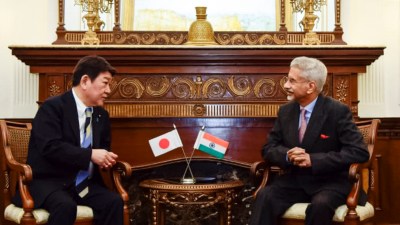Stay updated with the latest - Click here to follow us on Instagram
Question the Script
I have been exploring the subject of Disengagement over a long period,says Gitai.
Not someone who minces words,Israeli filmmaker Amos Gitai says,If you love your country in a real way then you have to speak in a free way. You dont have to agree 100 per cent with everything but you have to speak freely. This freedom of thought has fuelled Gitais work for more than two decades,making him one of the most celebrated filmmakers to emerge from Israel.
On his way home from the Kolkata International Film Festival,the 63-year-old stopped by Delhi,for a screening of his critically acclaimed 2007 film,Disengagement,starring Juliette Binoche. Gitais works have largely been critical of Israels policies and
often been deemed anti-national because of his sympathies with
the Palestinians. I am touching sensitive issues in my films. I cannot understand how people in my trade want to keep everyone happy, he says.
Disengagement,which was screened at Alliance Francaise in association with the Embassy of Israel on Tuesday,links a womans search for her daughter against the backdrop of the eviction of
Israeli settlers from the disputed Gaza strip. Some events inspire only one film,others,a number of films. I have been exploring the subject of Disengagement over a long period, says Gitai.
The filmmaker,whose father was an architect,studied architecture from the University of Berkeley,California,and his mother never took cinema seriously. He never trained professionally as a filmmaker,but forayed into cinema in the early 80s at the end of the Yom Kippur war of 1973,(in which Egyptian and Syrian armies sprung a surprise attack on Israel). Gitai was an army rescue pilot and his helicopter was shot down by a Syrian missile on the fifth day of the war. When we returned from the war,we had many questions,about the destiny of the country,social injustices and issues that should be questioned. Somebody needed to ask those questions,and only an artiste could do that, he says.
It took Gitai another 27 years to make his critically acclaimed autobiographical film based on that war,titled Kippur (2000). It is a war engraved in my memory and it shaped my conscience. At first,I wanted to forget the war,so it took a long time to gather energy and make that film, he adds.
Even before Kippur,Gitais films were making many in the country uncomfortable during the conservative period of the 80s. His 1980 film Bayit (The House) and Yoman Sadeh (Field Diary,1982),were regarded as inflammatory,which forced him into exile in Paris for more than a decade.
Gitai used the period to learn about cinema and surrounded myself with great masters. He cast German dancer Pina Bausch and Italian filmmaker Bernardo Bertolucci in one of his films (his only acting project) and in breaks would discuss cinema techniques with Bertolucci.
After his return to Israel in the early 90s,he created feature films such as Yom Yom (1998),Kadosh (1999),Alila (2003) and Free Zone (1995). For me,impactful cinema is one that is not consumed like a hamburger. It leaves a trace, he says.
Of late,his works have been more inward looking,exploring his links with his parents through films such as Carmel (2009) and Lullaby to My Father (2012). He also recently inaugurated an exhibition at the Museum of Modern Art,New York,based on his fathers work as an architect. Even after all these years,he still likes the thought of questioning decisions. When I will not be questioning,I will stop making films, he says.







